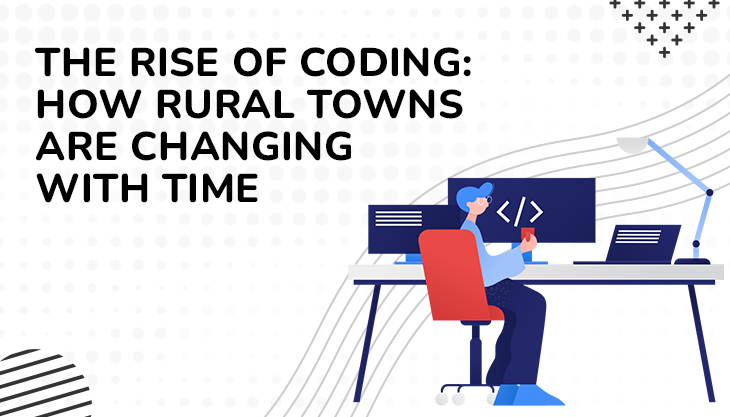Smaller cities and rural communities around the country are searching for ways to boost their economy, improve their quality of life, and capitalize on local advantages. Rapid growth near metropolitan boundaries, diminishing rural populations, and the loss of farms and working areas are all difficulties that many rural towns and smaller cities are confronting.
Slow-growing and dwindling rural communities may find that their strategies aren't delivering them the wealth they desire, while rapidly growing rural areas on the outskirts of metropolitan areas may suffer development pressures similar to those experienced in urban areas. Rural towns can use smart growth strategies to meet their growth and development goals while retaining their unique rural character. Determining where growth should go and where it should not go can assist a rural community to stimulate growth in town, where companies can flourish on an accessible major road and families can live near their daily destinations.
The status of rural towns today:
Policies that safeguard the rural landscape aid in the preservation of open space, the protection of air and water quality, the provision of recreational opportunities, and the establishment of tourist destinations that bring money into the local economy. Policies that encourage individuals to walk, bike, or take public transportation help to minimize air pollution while also saving money.
Whatever isn't conceivable now may be possible tomorrow, as history has repeatedly demonstrated. For one thing, each day brings with it a new opportunity to learn new things. Not to mention the fact that technology is constantly improving, so the chance to achieve something truly groundbreaking could be right around the corner. Techasoft Foundation believes that if you're a programmer - or a programmer-in-training - you're well on your way to seizing such an opportunity.
Youngsters in rural towns, too, can learn to code that has the potential to alter the world. It doesn't have to be the next big thing in social media or the best-selling video game... The notion is that the possibilities are limitless. Computer code is a fantastic instrument that may be used to entertain, educate, inform, or simply build something great and fun.
Children and teenagers can now enroll in a Tech virtual summer camp for a life-changing—and potentially world-changing—experience with Techasoft Foundation.
According to a recent study, small towns have generated much more non-farm jobs than large cities. In comparison to large cities, another study emphasizes the relevance of small towns in rural poverty alleviation. A slew of studies has now confirmed the rise of these medium and small communities as growth engines. One study indicates the growing relevance of these tiny towns as job creators as well as growth engines for new non-farm enterprises. The majority of these fun innovations are currently casual, with a focus on building projects, mass transit, and other service operations, which is one of the main reasons why the Techasoft Foundation wants to help youngsters in these rural towns learn to code.
How progressive facilities are uplifting rural areas:
Innovations in transport and communications have made it simple to find work in these urban outskirts. However, the availability of labor looking for work outside of agriculture has also aided these small and midsize communities. It's worth noting that the majority of these urban peripheries aren't just municipalities in close proximity to huge metropolitan cities, but also rural villages that have evolved into urban regions.
These statistical townships and small towns are characterized by the establishment of market towns. However, their proximity to rural areas has enabled these small & mid towns to flourish as demand for new goods and services from the rural population has increased. They have been able to protect themselves from the risks of large urban centers due to their tight ties to the rural and agricultural economy.
Sadly, despite their considerable contribution, these little towns are largely ignored in policy discussions. The fact that they are still governed as rural villages implies that they are not a top priority for state and federal administrations in terms of urban infrastructure. In any event, it is widely known that significant projects of urban infrastructural development in metropolitan regions account for the vast majority of our expenditure incurred on urban infrastructure. However, they are given less priority when it comes to providing energy, communication, and financial services like banking and credit.
The solution is an economic classification, not only a change in our perception of urbanization based on statistical indicators. But it's even more critical to realize the significance of shifting economic geography, which is based on these tiny towns and demographic towns. This will necessitate not only anticipating public provision of vital infrastructure and services to these places but also ensuring that they remain important for future growth.
Small towns, at a time when the economy is seeing the quickest expansion, are critical not only for creating jobs for new recruits to the labor market but also for a majority of people who will leave agribusiness in the future.

